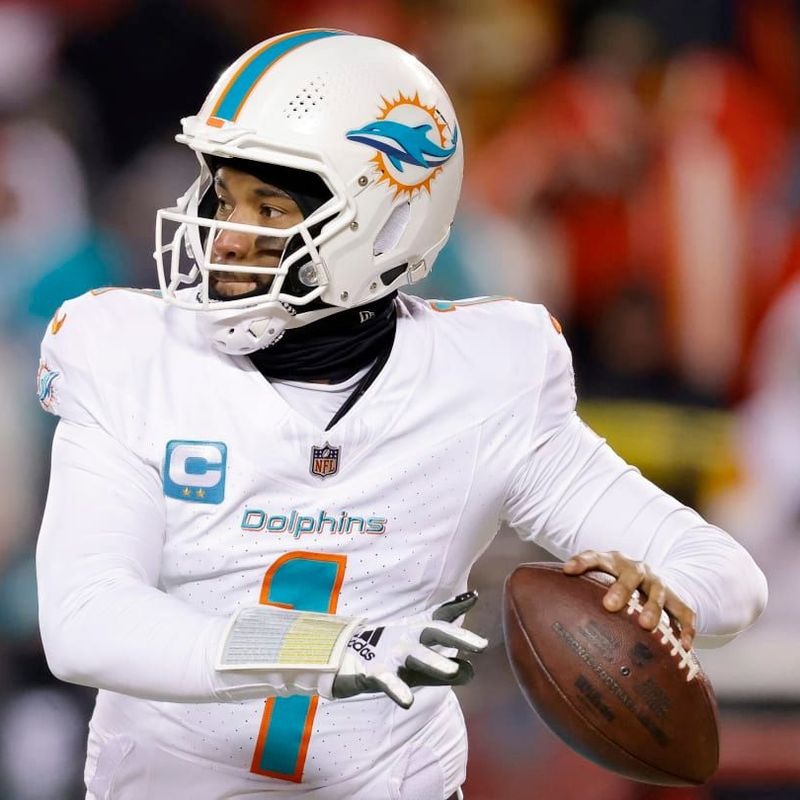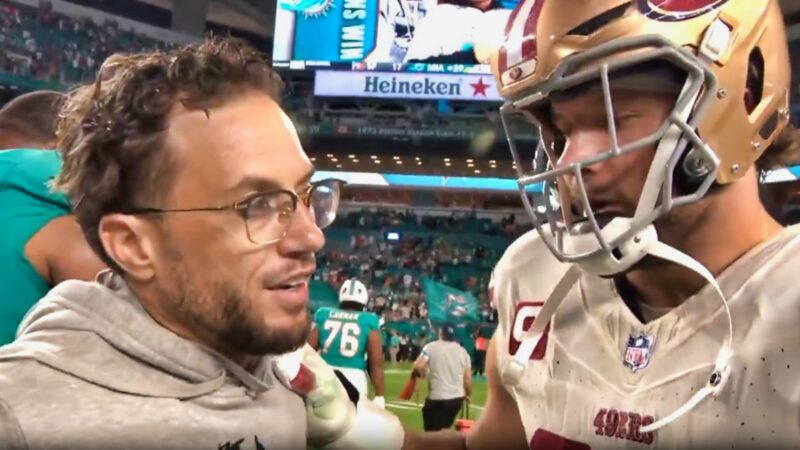As the Miami Dolphins gear up for their upcoming training camp, the unresolved contract situation involving quarterback Tua Tagovailoa looms large. Despite imperative upcoming deadlines, Dolphins’ general manager Chris Grier appears to be drawing out the contract negotiations. This strategy is not new for Grier, whose previous dealings have often led to increased costs down the line, as seen with players like Jaylen Waddle and Christian Wilkins.
The pattern of difficult negotiations under Grier’s management continues to raise questions. After the hefty contracts dealt to players like Bradley Chubb, Jalen Ramsey, and Tyreek Hill, one wonders whether salary cap limitations are influencing Grier’s hesitance with Tagovailoa. However, such fiscal considerations make little sense if Tagovailoa is deemed the cornerstone of the franchise.
Therein lies the real dilemma: does Grier see Tagovailoa as the franchise leader for the Dolphins? If so, the logic behind not securing his quarterback with a competitively priced contract is puzzling.
Tagovailoa has demonstrated substantial talent, though debates about his consistency and injury concerns linger. Yet, if he’s valued at a top-tier quarterback salary slightly below the highest echelons, scrimping over a few million seems counterproductive and could risk alienating the player.
The uncertainty surrounding Tagovailoa’s contract also risks practical ramifications. Without a deal, there’s a real chance that Tagovailoa might hold out, missing crucial preseason preparations.
Such a scenario isn’t unprecedented, and typically, the team ends up conceding to player demands after detrimental delays. This potential stand-off could be even more precarious for the Dolphins considering their lack of a robust backup quarterback option.
Speculation suggests Grier might be seeking contractual clauses to mitigate risks related to Tagovailoa’s injury history, notably his concussions. While prudent, this should be balanced with investment in player protection, ensuring Tagovailoa faces reduced risks on the field.
As the situation drags on, Tagovailoa inadvertently gains leverage, with options ranging from playing under a fifth-year option to sitting out with strategic injuries. Meanwhile, the Dolphins could find themselves in a compromised position if their starting quarterback, and arguably a team leader, is sidelined or disengaged.
In conclusion, Chris Grier’s standoff approach in contract negotiations, particularly with a figure as pivotal as Tagovailoa, leaves much to be desired. With training camp approaching and no resolution in sight, the only certainty is further speculation and potentially disruptive team dynamics. Grier’s track record of capitulating under pressure might once again lead to a rushed resolution, begging the question: why delay the inevitable?




